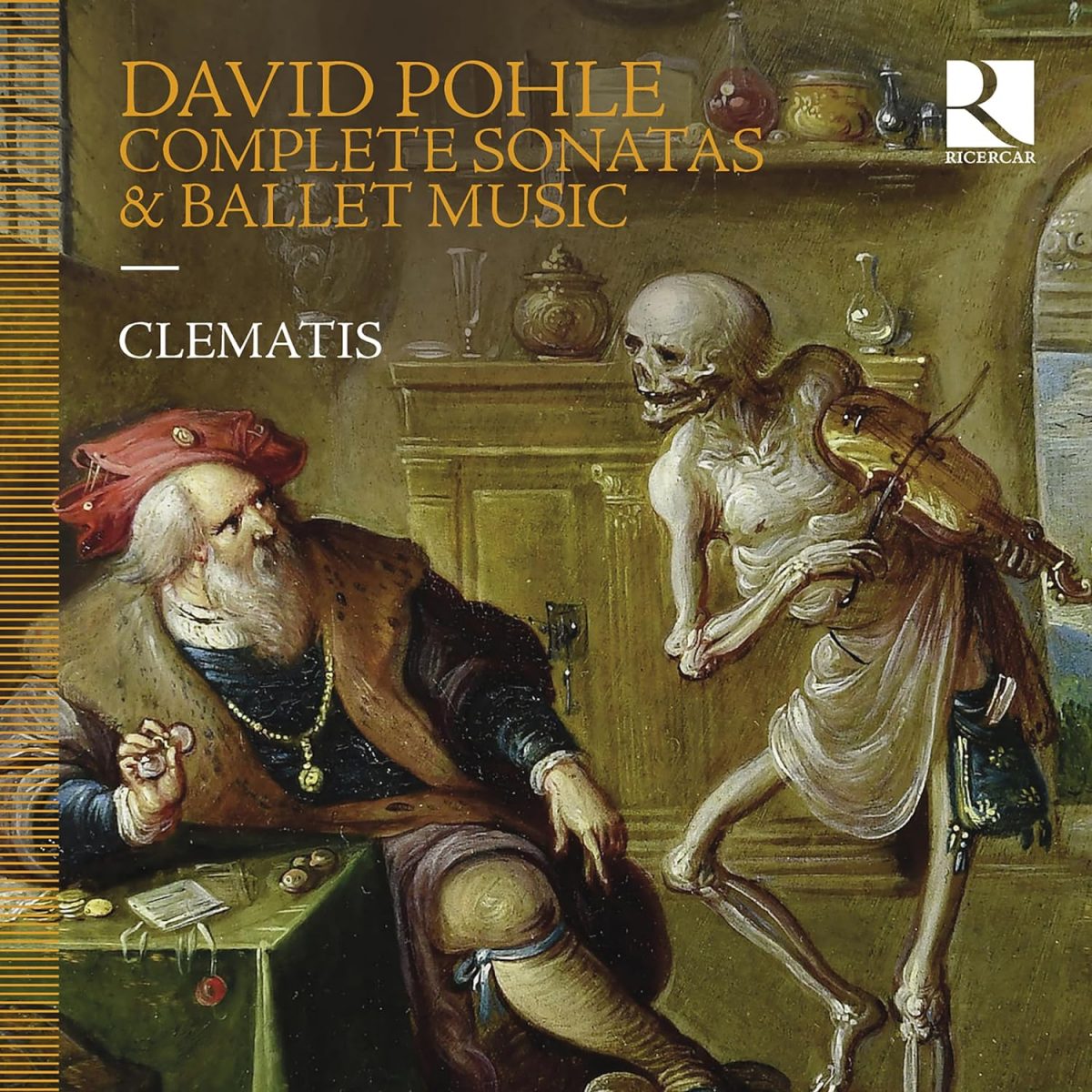Clematis
152:16 (2CDs in a card triptych)
Ricercar RIC460
I don’t imagine for a minute that many readers will be familiar with Pohle’s music. He was acquainted with several better-known figures: a student of Schütz in Dresden, later in life he was a friend of Handel’s father in Halle. In between, he worked for the chamber music-loving Margrave Moritz in Kassel, and then the court of Gottorf. In Halle, he wrote a cycle of cantatas for the entire church year, among the first to do so.
Founded in 2001, Clematis most recently impressed me with their recording of Legrenzi’s music and these new discs have merely enhanced my impression. The majority of Pohle’s surviving sonatas are for five or more instruments; he exploits every possible combination of voices in intricate patchwork pieces where counterpoint and homophonic passages – often of striking harmonic richness – are juxtaposed. It’s just the kind of mental stimulation I love! That is why I set out to publish all his surviving manuscript music, in collaboration with the author of the booklet note, Gottfried Gille, and a German postgrad, Juliane Peetz. While it is nice to see my editions credited in the booklet, it is rather frustrating to read that reconstructing the missing first violin part for four of the sonatas was more difficult than 13 of the others, but not that Clematis played my solutions! The second time I’ve been written out of musical history in the past few years…
Be that as it may, the performances are fabulous – the violins are bright, the violas crisp, the winds suitably raspy, and the continuo largely content to supply a backdrop for all the activity in the obbligato parts.
I am surprised that I had not noticed the passage around two and a half minutes into Sonata 6 in A minor that is more than a little reminscent of Monteverdi’s Ballo delle ingrate. The Dances in F (G. 28) survive in the library in Kassel, prefaced by a work called “Le Testament” by a Sr. Belleville; I have to say that they are quite like anything else in the set – I hear Georg Muffat…
Brian Clark
